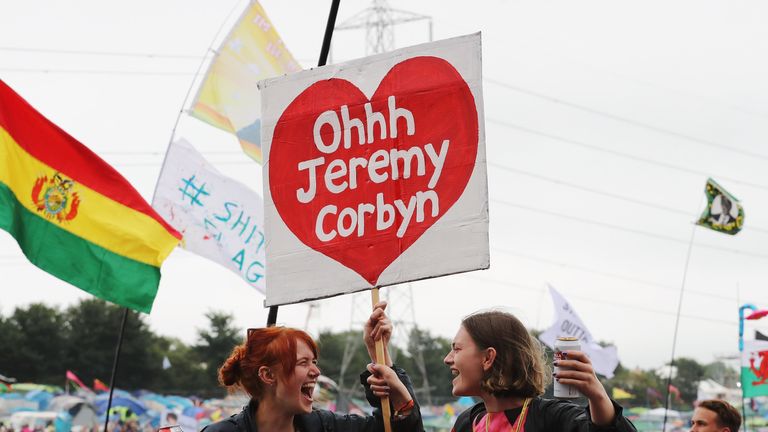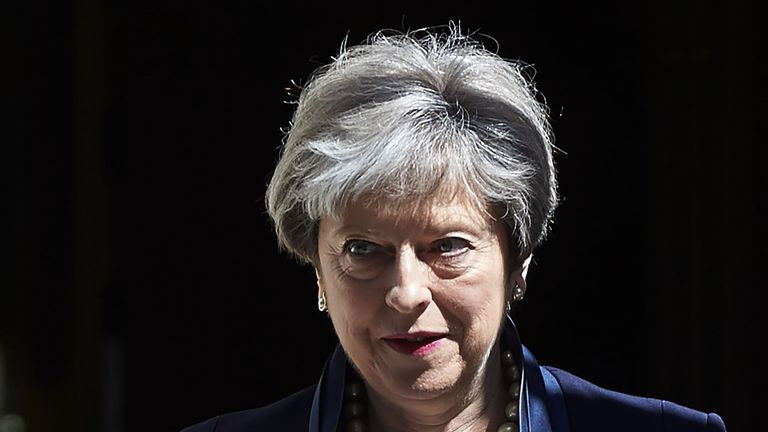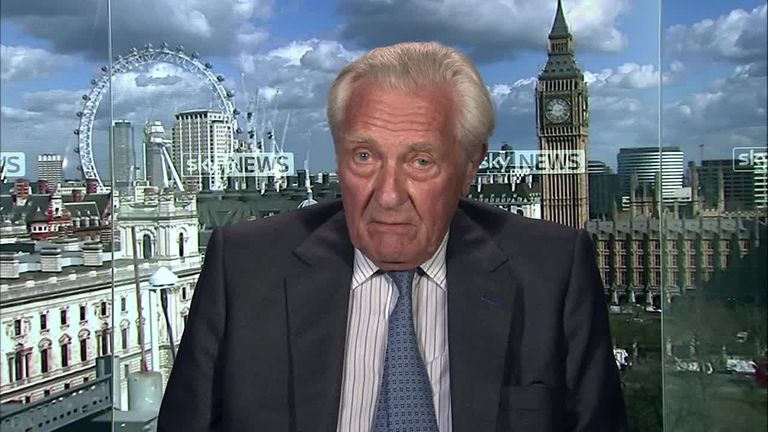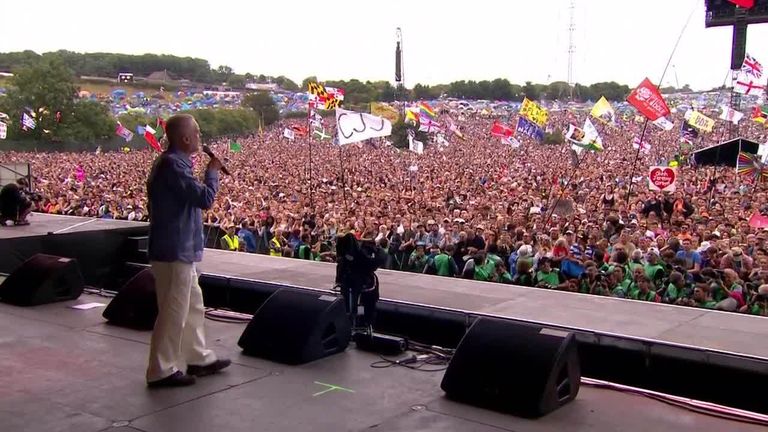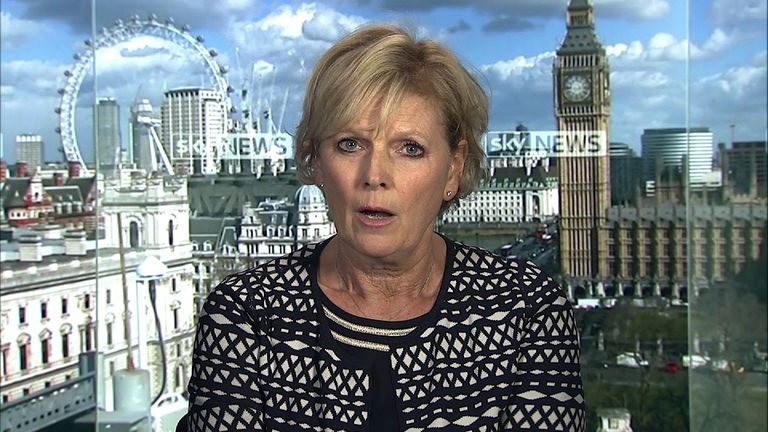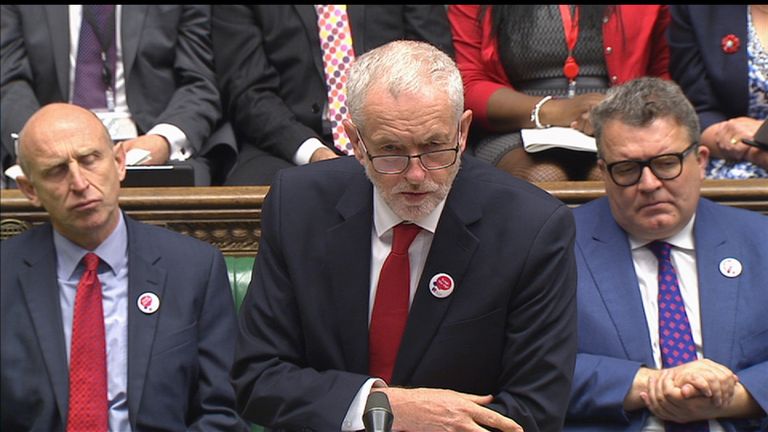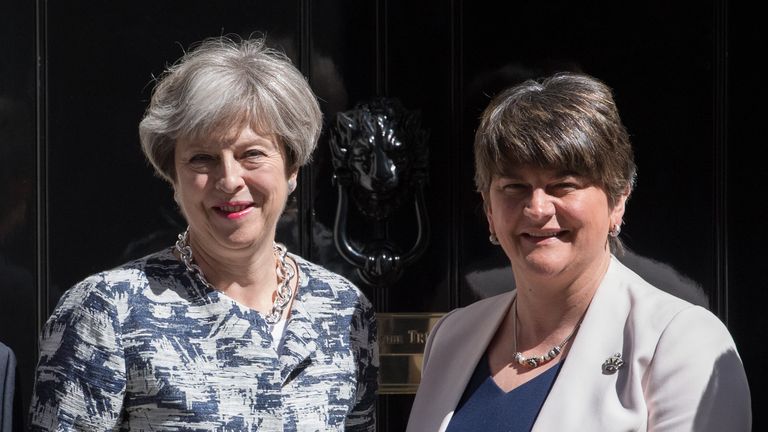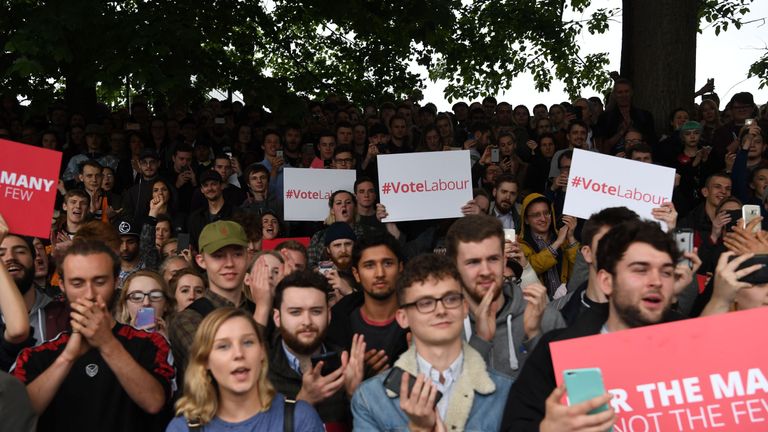Five ways Jeremy Corbyn could take power
We take a look at several scenarios which could precipitate another general election in which the Labour leader could take power.
Tuesday 18 July 2017 09:33, UK
There's no doubt Theresa May is still fighting for her political life.
The Prime Minister is battling on a number of fronts, with some saying her leadership and credibility are in tatters.
Her Conservative minority government - propped up by the DUP - is in a fragile position and faces many challenges in Parliament - not least on Britain's exit from the European Union.
But has her election disaster left the door open for Jeremy Corbyn to enter Number 10?
We take a look at several scenarios which could precipitate another general election in which the Labour leader could take power.
:: Losing a key vote
Mrs May's gamble of a snap election to win a Brexit mandate horribly backfired, leaving her with a working majority of just 13 - 10 of those votes reliant on the Democratic Unionist Party's lawmakers.
It only takes seven Conservative MPs to turn a rebellion into a loss of majority for the Government and the DUP - or even a small number of absences through illness or travel delays.
This would also require a considerable amount of planning on the part of the opposition parties to organise a potential defeat of a key legislative Bill by ganging up on the Tories and DUP - but it is plausible.
Key manifesto pledges to change the triple lock on pensions, to means-test the winter fuel allowance and bring back fox hunting and grammar schools have already been sacrificed to see off such a threat.
Labour has claimed Mrs May's programme is in "tatters".
"Theresa May does not have a mandate for continued cuts to our schools, hospitals, police and other vital public services or for a race-to-the-bottom Brexit," Mr Corbyn was warned.
"Labour will fight these policies every step of the way."
:: Vote of no confidence
The Conservative Party is ruthless with losers - and the PM's benches will be watching her performance closely following her botched election campaign.
While some Tories have called for calm, warning the party needs another leadership election "like a hole in the head", rivals may wait for Mrs May's not so strong and stable leadership to fail.
Only 15% of Tory MPs would need to back a no confidence vote in the Prime Minister to trigger a leadership contest - this means just 48 members of her minority government turning against her.
Even if this were to happen, it does not mean an immediate election.
The nation did not go to the polls when Mrs May replaced David Cameron last year.
In addition, the Fixed Term Parliaments Act remains in place - which means a two-thirds vote of the House of Commons is required to secure an early dissolution - so both main parties need to be on side for it to happen.
In other words, a majority of MPs must pass a motion saying "this House has no confidence in Her Majesty's Government".
Given Labour's recent surge in the polls and Mr Corbyn's rising popularity making him the favourite to win, why would the Conservatives - or a new Tory PM - want another election anytime in the near future?
All parties would have two weeks to form another government. If that failed, another election would be called.
In any case, Mrs May's downfall, however, would set off a chain of events making another election inevitable.
:: Could Brexit trigger an early election?
Well, it triggered the June poll!
Mrs May's catastrophic gamble to win a has left her party split over the issue.
While the Cabinet Brexiteers have been boosted by the return of Michael Gove, Tory Remainers have been flexing their muscles since the election result and there are growing .
She is facing a by a cross-party group set up to fight against a "hard" Brexit.
The all-party parliamentary group on EU relations is co-chaired by Chuka Umunna, who recently led a Labour revolt over Brexit by calling for the UK to stay in the single market, and prominent Remain campaigner and Conservative MP Anna Soubry.
The Repeal Bill - which will replicate all existing EU law into British law by the time of Britain's departure from the EU - is expected to be tabled when Parliament returns in the autumn and will provide a crucial test for the Government's ability to get key measures through.
In addition, she is also because it is under the jurisdiction of the European Court of Justice - whose influence over the UK she has highlighted as a "red line" in her Brexit negotiations.
At least nine Tory MPs have indicated they are against this, and according to Sky's Political Editor Faisal Islam, on this issue, at least, the implications appear toxic for the Prime Minister's chance of a majority.
Mr Corbyn is facing splits in his own party over Brexit as well - highlighted earlier this month when 49 Labour MPs defied him and party policy by voting in favour of an amendment tabled by Mr Umunna calling for Britain to remain in the single market.
But it is Mrs May who is in the driving seat (at least for now) and in her own words, facing "a different reality" a year on since becoming Tory leader, and her plea to Mr Corbyn and Labour to come to her aid on Brexit has fallen on deaf ears.
Mr Corbyn has rejected and mocked , and instead demanded a fresh election if her government has run out of ideas.
:: The Democratic Unionist Party walks away
The confidence and supply deal worth £1.5bn agreed with the Conservatives means the DUP's 10 MPs will support the Government on key votes in the Commons - including the event of a no confidence vote.
The pact prevents Mrs May's minority government from being "ambushed" - as described by Defence Secretary Michael Fallon.
The deal is not binding - unlike the formal 2010 coalition between the Tories and Liberal Democrats.
However, it is in the interests of the Northern Irish parliamentary kingmakers to keep their part of the deal and prop up Mrs May's premiership.
Under the arrangement, about £1bn in "new money" has been earmarked for Northern Ireland, as well as greater flexibility over £500m already allocated to the country.
Mrs May has survived several crucial Commons tests already - including a majority vote for her Queen's Speech - thanks to the DUP's support.
The DUP has also reportedly pledged to support Mrs May's government "for as long as Jeremy Corbyn is leader of the Labour Party".
The likelihood of Mr Corbyn being ousted on the back of a significant post-election boost for Labour is slim.
:: Another General Election
The most likely way Mr Corbyn could enter Number 10 is if there was a fresh election.
Just hours after the June poll results were declared, Mr Corbyn called on Mrs May to resign, declaring he was "ready to serve the country".
It is impossible to say how long the PM will last at Number 10.
Minority administrations have an unhappy history and Mrs May will be wary of the fate that has befallen others before her, including the cricket-loving former PM John Major who also relied on the support of Ulster Unionist Party MPs.
In 1992, Mr Major won a majority of 21, but found himself leading a minority government from December 1996 due to a combination of by-election losses and defections.
His minority government limped on until May 1997 when the Conservatives were swept away in a landslide by Tony Blair's Labour, sealing Mr Major's fate.
Mrs May said at almost every election campaign rally that if she lost just six seats she would have lost the election.
In the end her party recorded a net loss of 13 seats. Mr Corbyn's Labour surged to 261 seats - up 29 from its tally in the 2015 election.
She is still in Downing Street, but her minority government does not wield much power.
If key legislation is repeatedly voted down in Parliament, the country could be going to the polls again very soon, with Mr Corbyn odds-on favourite to become the next PM.
